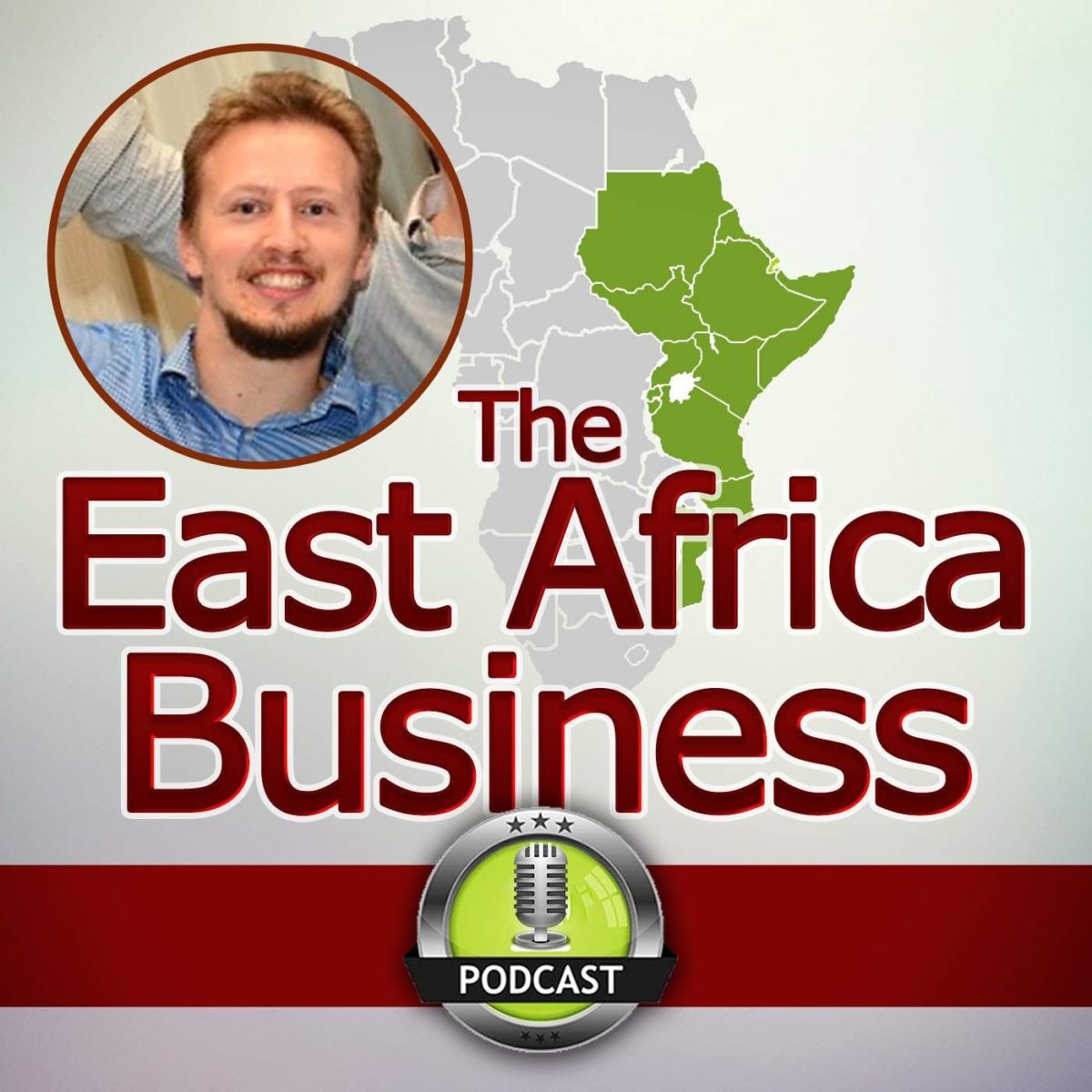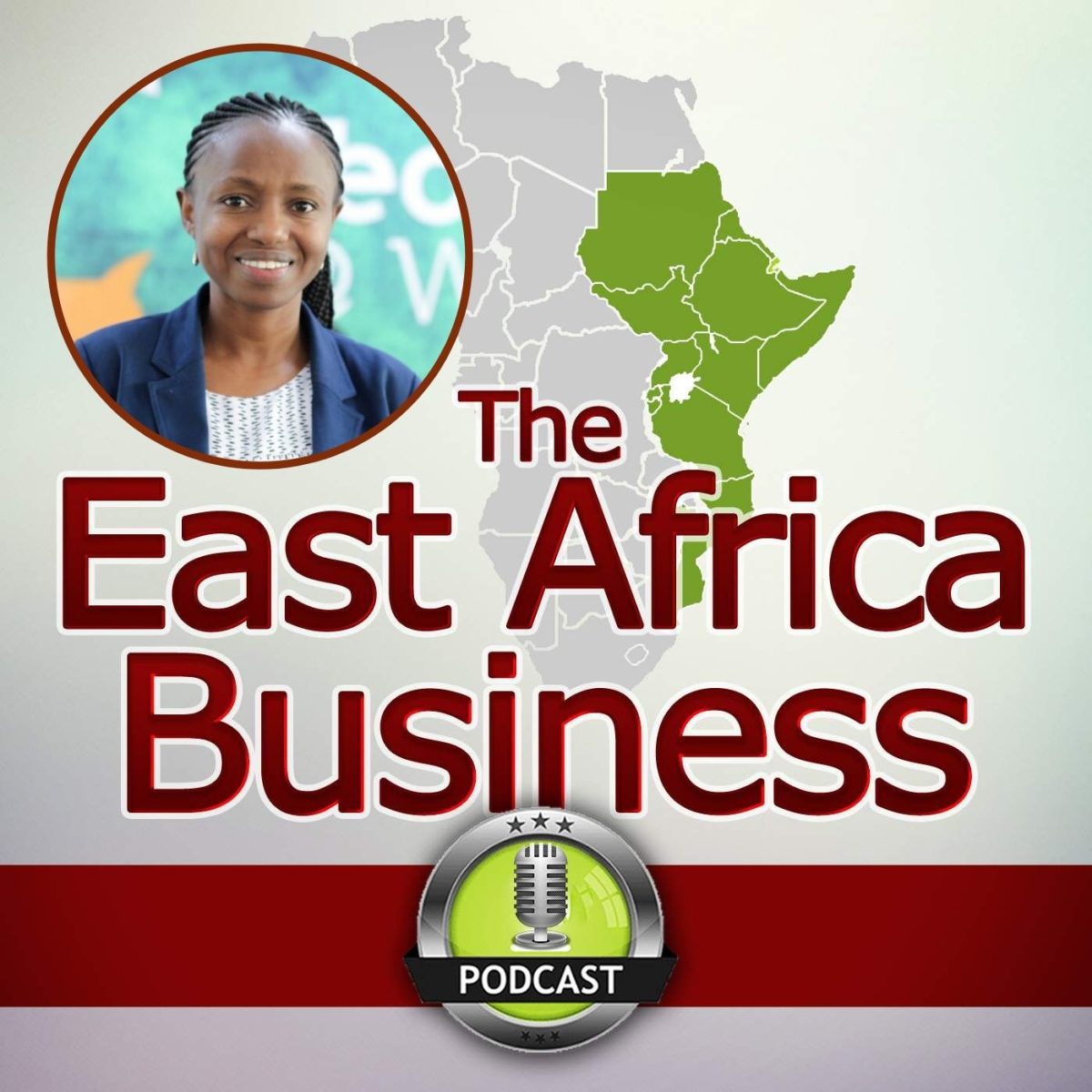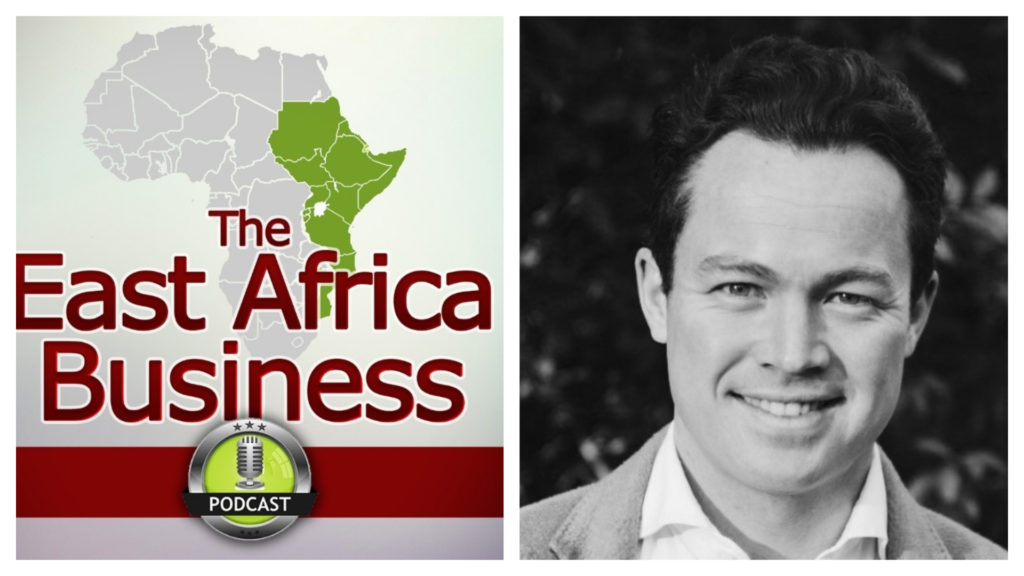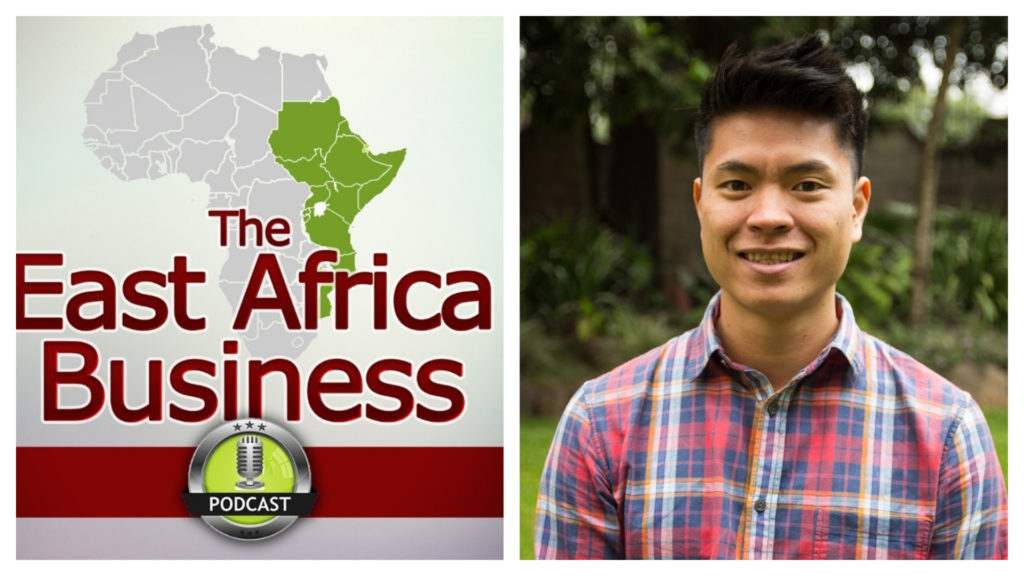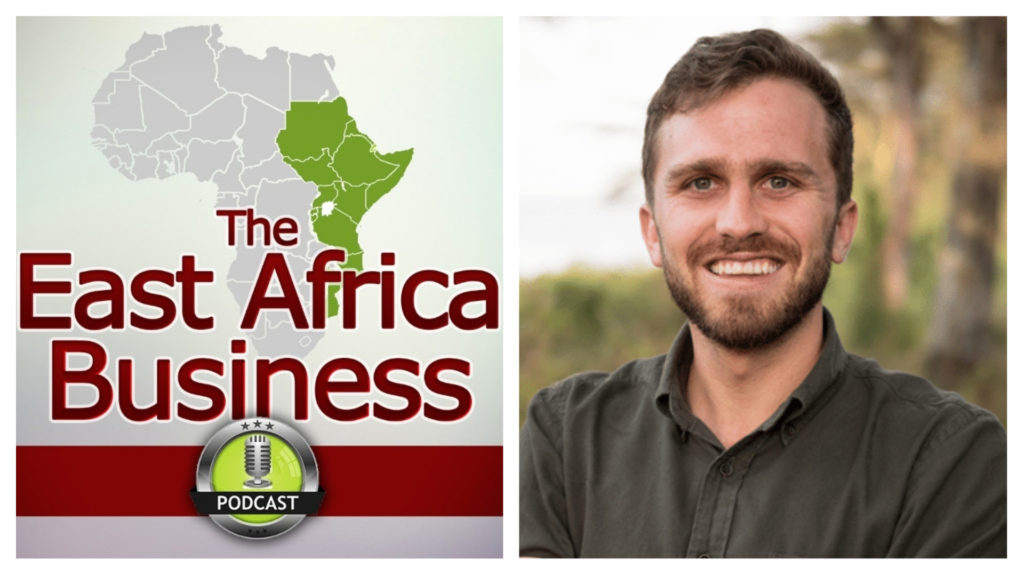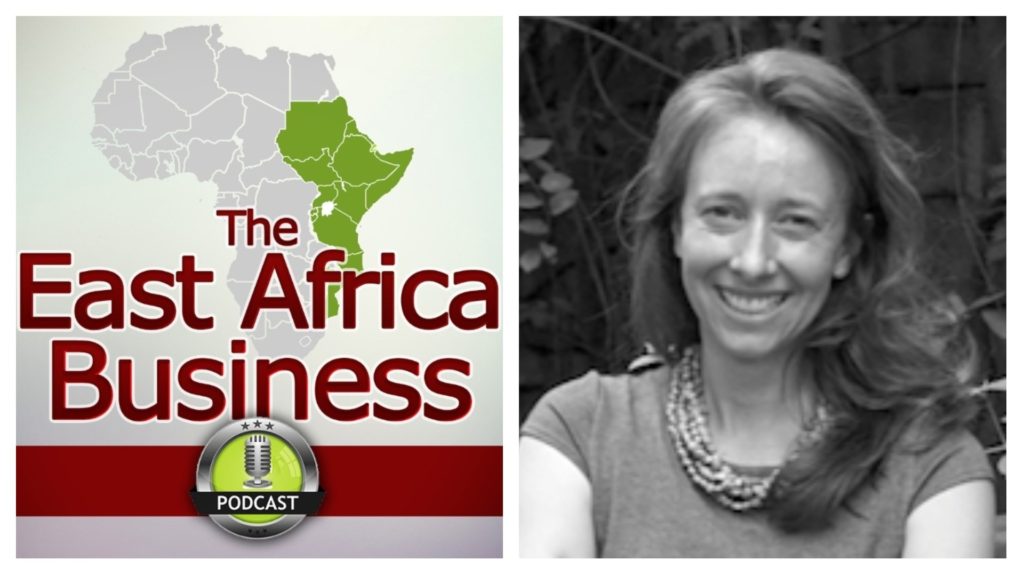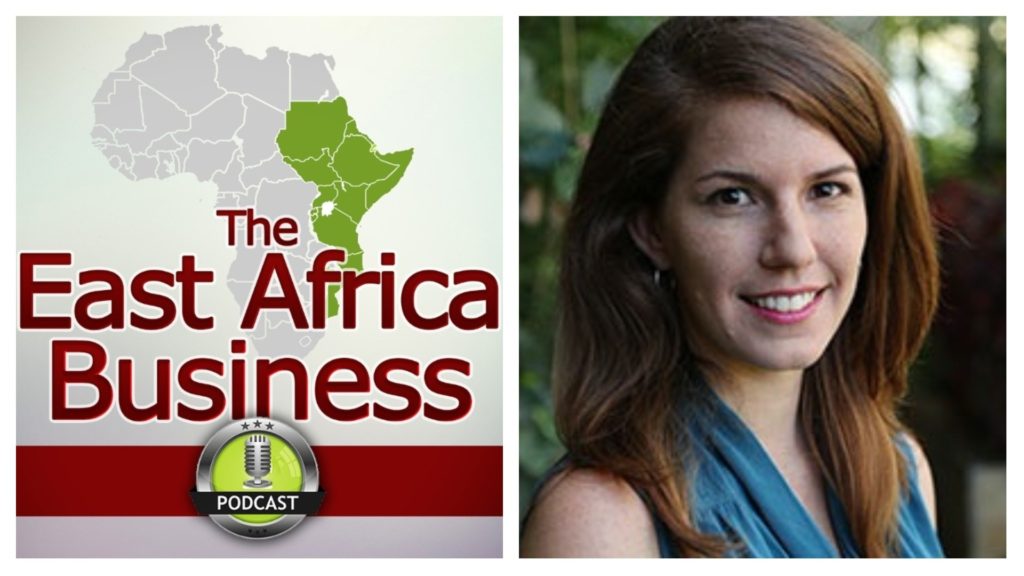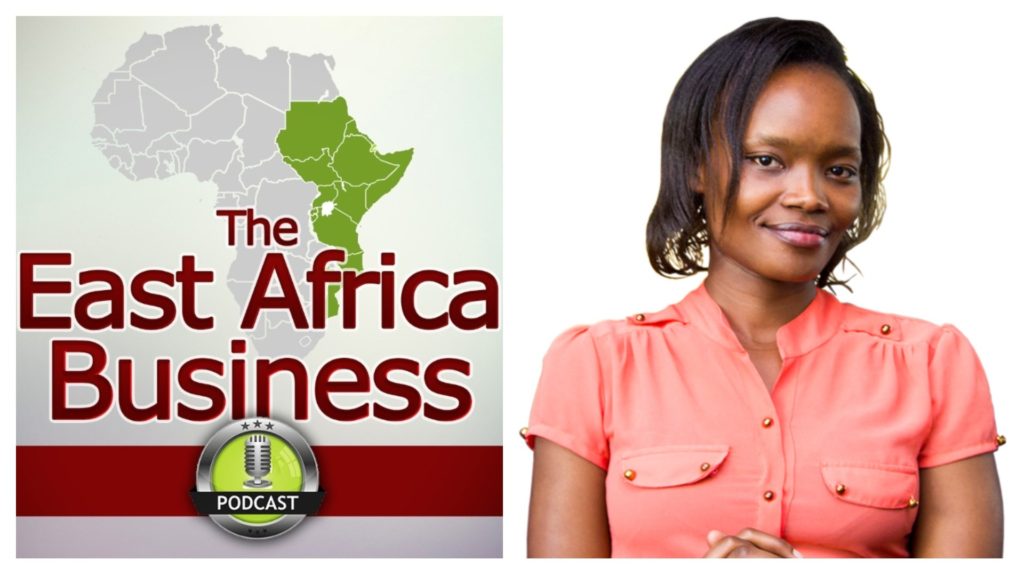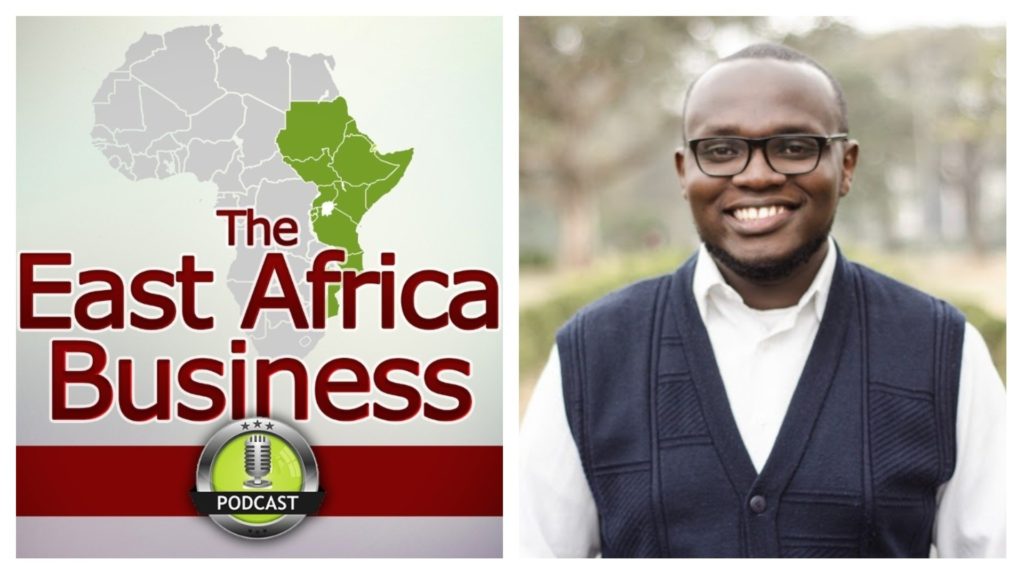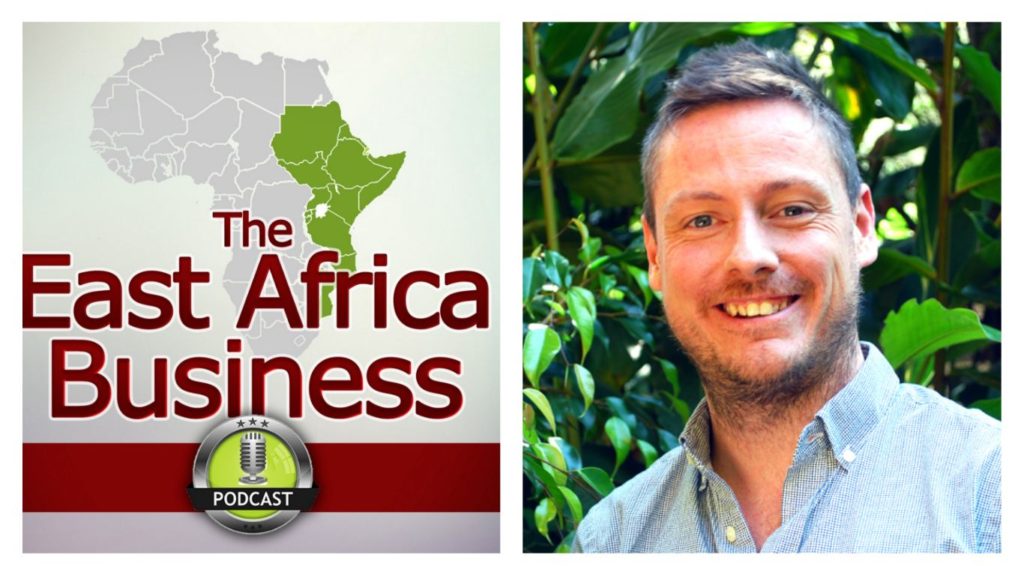Overview
In this episode, I catch up with Johannes, co-founder of Lynk.
We initially spoke back in late 2016 along with his co-founder Adam. You can listen to the interview by searching for the episode on ‘How Lynk is building a “TaskRabbit for Kenya”‘.
The company has continued to grow over the years, and this time we meet in the new Lynk house/ office. With a new round of funding secured their employee numbers are up to 45 and, well, they need a new place to house people.
Johannes and I dig into how the business has grown and evolved over the past few years.
The company began by offering services to individuals, and whilst this is still part of their platform, a much bigger side of the business that has grown is B2B.
One of the things Lynk now it is effectively a construction company.
They use their roster of workers to effectively and efficiently build factories, as well as do the interior design and facilities management.
Regarding the individual services that are offered, such as beauticians, the model has also evolved into more of a micro-franchise. Practically this means that Lynk defines the services and how they should be delivered, and then give new workers on the platform a start-up loan to purchase the necessary materials and build their business on Lynk.
Sign up below to hear whenever there are new stories and episodes released on the podcast
Social Media Links
Website: https://lynk.co.ke/
Facebook: https://www.facebook.com/Lynk.Kenya/
Twitter: @Lynk_Kenya
LinkedIn: https://www.linkedin.com/company/lynk-kenya/
Transcript
Sam: 00:07 Intro.
Sam: 02:51 Cool. So we’re here with Johannes from Lynk.
Johannes: 02:54 Hey guys,
Sam: 02:54 Again. So we were last here with your colleague Adam, in the old Lynk house and Adam is away sealing big deals today.
Johannes: 03:03 He is, yeah, he’s signing contracts.
Sam: 03:05 Signing contracts, so…
Johannes: 03:06 Doing other things.
Sam: 03:07 Doing other things. So we’re having a catch up on what you’re up to. We initially had this chat around the corner in your old house, Lynk’s offices.
Johannes: 03:18 Yep. We are still, we were a smaller place then.
Sam: 03:20 Yeah. So you know what I’m saying. So, so today we’re going to sort of, basically get a catch up of where Lynk is, but just sort of to get started, can you give us a brief overview of like what Lynk is what you’re doing at the moment?
Johannes: 03:30 Cool. Awesome. So we focus on two things at Lynk. We work with informal sector workers, so these are workers that often work without labor contracts, they form about 80% or so of Kenya’s population, right? People that don’t have access to the protection that comes with the work contract, right, like health insurance and whatever else. So that’s one side of what Lynk does. And then the second side of what Lynk does is technology. So we try to find ways that these informal sector workers can find more reliable work can build a career and can get access to the labor market that normally they’re locked away from.
Sam: 04:10 ‘Fundi,’ That’s the word.
Johannes: 04:13 Yeah. So in Kenya I think an important word is ‘fundi’ that’s the general handyman, I guess. So that’s one part, I guess maybe like about 25% or so of our worker population could be described as ‘fundis.’ We, I mean, the word is nice, but what we don’t quite like about the word fundi is that often it implies that people don’t specialize, and we would, we want our worker population to try and specialize, right? So to get really, really good at one thing and then focus on that one thing. So we have fund in our platform, general handyman, but then we also have things, you know, like in segments such as, you know, like beauty. So you can get a, I don’t know, manicurist to come to your house. You could get a hairstylist to come to your house. We have things around you know, like cleaning and cookings, so you can get somebody to house your pins for you, or cooks for you or whatever it is. So any kind of service that’s designed at your house, but then also you know, like even physical things that somebody makes for you. So furniture making, carpentry, tailoring all kinds of diverse services. But then in addition to your informal sector workers who are as independent service providers on our platform, we also bundle products for business customers, so we work with our workers together to do things around facilities management and maintenance, right? So we have a team of key account managers that work with large-scale property management companies to do repairs and maintenance for their property space. And then we also do construction and fit out we call it the boutique construction firm where we have product managers, interior decorators, architects, who are working with our workers to deliver construction projects to our clients. So a diverse set of products.
Sam: 05:56 Yeah, I mean, that’s definitely new because I seem to remember when we first chatting, it was sort of the, the analogy was a task rabbit.
Johannes: 06:02 Yeah.
Sam: 06:02 If you need somebody. And we’re saying, you know, most requests are reactive, so, you know, I need some plumbing done…
Johannes: 06:10 Something’s broken. I need to fix
Sam: 06:11 Are you saying, is the company taking more of a direction of this sort of bespoke work or yeah, how would you sort of describe it?
Johannes: 06:20 So we’re still kind of spread out in different segments. One thing that we did realize is that there is a lot of opportunity on the B to B side, right? So initially we did indeed focus quite heavily on the household side. Now we do a lot of work on the B to B side. So we have two different products for business customers, right? One of them is the maintenance and facilities management product we call that Lynk for business. And then the other one is the construction product. We have realized that there’s a lot of potential in that space construction is a thing in Kenya that is booming, right? So like developing countries usually grow with construction quite heavily. And on the customer side it was always kind of clear that it would take us time, and I guess also money to develop the household customer side, specifically because a lot of behavior, like our product relies on a lot of behavior trends, right? So we need to work in, we’re working in a space where there’s a lot of mistrust, right? So customers don’t trust workers. They think workers are out to, I don’t know, steal from them, lie to them and whatever else. And in many cases that may even be true, right? So they have kind of learned that behavior and we need toit would take us time and it is taking us time to build a brand where people are then trusting us and saying, yes, generally in the informal space, reliability’s an issue quality’s an issue or whatever else. But if I do it with Lynk, I do get a quality guarantee. I get a hundred percent money back guarantee if something goes wrong, right? They will help me when there’s any kind of issue and afterwards I will not be left with a bad taste in my mouth. I will actually be satisfied, happy with the job. And whatever else and I’d come back. So we think on the household, on the customer side and the personal customer side there’s a lot of behavior change that still has to happen for us to be able to access the whole market. I mean, we’re seeing Jumia needing a little bit of time to explain e-commerce and make it work and similarly fast, right? Essentially an eCommerce experience for services. So that’s something that before us didn’t really exist.
Sam: 08:10 So how did the whole B to B side, how did that, that side of the business, how did that emerge? Was that, was it that a cold inquiry came in?
Johannes: 08:20 Yeah. It’s kind of like that, so initially I mean it actually emerged kind of at the time when we first spoke. What happened is that businesses came to us and said, you guys have plumbers, right? So like, maybe you can help me with my renovation project where I need a couple of plumbers, I also need some masons or whatever else. And we said, yeah, I guess we can, I mean, it’s not quite how we operate, right? We’re like an automated platform where, that sort of thing doesn’t really fit in. But like, let’s see. Right? So, and then we started hiring project managers to deliver those projects to have all work as coordinated, right? Because if we would just send, I don’t know, three, four different kinds of workers to project site and hope that they will organize it, that obviously wouldn’t work, right? So you need to manage a construction site. So we started hiring a key account managers and project managers would then go to our customers and work with them to deploy our work as effectively. And this product just grew. So we started adding things like design around it so somebody can come to us and can say, I want a design for my new office. And then afterwards I want somebody to build it. So now we have a team that delivers designs and then afterwards a team that delivers the bid out. And since this market isin some ways very difficult and specifically the construction space is maybe not very efficient. We are able to deliver higher quality at a lower price, then whatever the market is able to deliver. So that product has grown tremendously.
Sam: 09:42 We see the design as in, someone will say, right, I’ve got a empty office.
Johannes: 09:47 Yeah.
Sam: 09:48 And I kind of want you to do not just construction, but also the creative. How do you source interior designers?
Johannes: 09:54 We hired them on like full time on staff. So it’s a normal hiring process. And like many hiring process, it just takes time, right? You need to identify the right talent and whatever. So we have a team sitting right behind us, essentially in the room right behind us that fulltime works on designing and building different…
Sam: 10:12 Okay. So the design, interior designers are in house. They don’t ask. They’re not, it’s not another…
Johannes: 10:19 This is not the platform approach. This is designers we have on staff architects we have on staff and project managers, we have on staff. Deploying our workers on construction sites. So from the worker site, this means for them that they get access to project sites that they normally wouldn’t have access to. Right. Because unless, I don’t know, maybe they somehow got lucky or something like that. But it gives them the ability to work on project sites, on days that they’re not busy on our platform.
Sam: 10:45 Yeah, and I imagine as well, if you’ve got like, I actually got no idea how the interior design world works, but I imagine a big part of the thing is, yes, here’s my vision, but actually I need someone to deliver it.
Johannes: 10:56 Yup.
Sam: 10:56 So I imagine…
Johannes: 10:57 Yeah that happens quite a lot. So I mean, frequent projects that we have is restaurant build outs. So we’ve built quite a lot of restaurants that you may know or may have been at, for example, Bao Box, J’s in Westlands, The Alchemist, we put down some work there. There’s a lot of different places. And in those cases, there’s often quite a strong vision that the customer already has where they say, I want my place to look like this. I want my furniture to be rustic. I want my, I don’t know what and then other types of customers that we have is actually start-up offices. So quite a few startup offices we’ve built out and in those cases, usually customers come to us and they say, I have this space. I want to maximize it for people to be able to work effectively, or I want it to be you know, like cozy and a nice work environment and quiet. So I need, I don’t know, phone booths to be quieted and so on and so on. And then we make a proposal and they say, yeah, I like it. Or they say change these three things. So quite traditional, I would say.
Sam: 11:49 Okay, do you make foosball tables?
Johannes: 11:53 I don’t think we’ve made a foosball table yet, but what are you looking for one? We can ask our head of carpentry if he can make a foosball table.
Sam: 12:01 You’re going out and kicking out all these startup offices. That might be something which you have on your list of your things. Okay. So that’s quite cool. Oh, so that’s like part of the business switch which came by, and one of the things which I remember speaking about was that the approach you were taking was to go broad and shallow rather than just try and do one vertical because there just wasn’t the demand for it.
Johannes: 12:22 Yup.
Sam: 12:23 Are you seeing that? I mean from the sounds bit, you’ve kind of, you had your whole households and your actually this whole other vertical in the B To B side. Is that kind of how it’s panned out?
Johannes: 12:32 Yeah, so I think one thing that has happened is that we discovered the B to B side. I mean we knew it was there before, right? We started experimenting with some customers in the B to B side before when we spoke last. But now we know that there is a lot of potential. Now we’re actively going out and pitching to businesses to take over all of their maintenance.
Sam: 12:49 So what’s the main, so the maintenance side is just that, some sort of recurring business that you’ve got.
Johannes: 12:54 Essentially recurring revenues.
Sam: 12:55 And, so that would otherwise have been done by some sort of facilities management company.
Johannes: 13:01 There is a lack of supply in the market in this space, right? So this, this market is very inefficient there is a lot of corruption in this market there’s a lack of formal established companies that can deliver at a decent price point, high quality work. So when we go and pitch to property management companies, all of them say, wow, that is awesome. I want it. Can we please sign a contract with you guys? But the operational modality of it is difficult, right? So like we are realizing, and not only in the, in the B to B space, but in other, like in other products as well. The operational logic that we need to apply in many cases is actually it’s quite complicated. Right? So like, just to give you an example I talked about corruption, right? So like in the property management space, a lot of these companies are maintaining their own operations team, right? Their own maintenance teams to do maintenance for all of their commercial properties, right? So if you’re talking about the malls or whatever else and the people who they have on the ground often receive kickbacks from their suppliers, right? So they get paid by their suppliers to give them a contract.
Sam: 14:05 This suppliers being?
Johannes: 14:07 The suppliers being the repairmen or companies that deliver work for them, contractors or whatever. So there’s a lot of, you know, like corruption in that space and we obviously don’t have any of that on our platform, which makes us very attractive to the owners of those companies, but maybe makes us not so attractive for the people on the ground. So we have to kind of navigate that in a way, which is interesting, right? Like, that’s not something we had thought about before but clearly the value add is tremendous, right? If we can cut out corruption in that space, deliver higher quality work and for a lower price, it’s obviously a tremendous opportunity.
Sam: 14:41 I see. And what’s like your deliverable? I’m trying to think. So, do you basically say, right, you’ve got a fit, you’ve got a call out charge or you’ve got X. And then basically, let’s say that one of the malls, and they’re like we’ve got a broken pipe. Do you, is it like request comes into Lynk and you’re like, cool, who’s the nearest plumber or…
Johannes: 15:03 So we now have fixed prices so we have prices for our customers, right? So that they wouldn’t have to kind of guess what the price would be for that repair or whatever else, right? We can then tell them beforehand with quite high degree of certainty what the price would be. Right? So there’s certain rates for labour there are certain rates for specific types of materials and so on. And obviously there has to be variations depending on the complexity and so on. But we can usually tell, give them an indication beforehand. The way that we usually work is that or the value addition of us is that we send key account managers to these properties and we give them a regular report, right? So you get an inventory at the beginning when you sign up with us where we say we recommend these five things to be done. Here’s a respect of quote, write it across such and such. And then all they have to do is click and it will get confirmed and we will do it and then we will send them at the end of the week a report of what has been done, what has not been done, what else has been discovered that should be done? Right? So like maybe in the, while we were doing repairs, we discovered that you know, like one of the wash rooms has been leaking and it needs to be fixed as well, or something like that. Right? So good communication, consistent updates, notifications about what is happening and transparency also about like, what are you paying for What? Right? So like pictures being taken on site and embedded into the report. And then the transparency of what kind of money flows where I think is something that people find quite attractive.
Sam: 16:20 That’s really cool. Okay. And did you have any, I suppose yeah, you mentioned you sort of were thinking this might happen one day. This is just something which I, when I first thought Lynk I was thinking yeah, like someone have a, if you’re going to have like a beautician come around or something. So it’s quite cool how it’s nowadays like a full on facilities managing company.
Johannes: 16:43 But let’s say a facilities management company with a technology component.
Sam: 16:47 Okay, okay, so that’s that one of the things that you were quite, you personally were quite excited about, I remember, was all the data that you were collecting. So I can only imagine it’s gone. There’s more data. What are some of the cool stuff you do now?
Johannes: 17:04 Just to quickly explain this, my background is in data science and actually Adam and I met I think when I was running a data science meetup ages ago and that has since gone to sleep cause I didn’t have the time to keep it up anymore. But so that’s my background and that’s why I’m super excited about what we’re doing. Right. We’re learning pieces of information, data points about a space where there just isn’t a lot of data, right? Like there’s a lot of economic activity but there just is not a lot of data about what these workers are doing, what they’re earning, how they’re spending their day, and what else they can be doing. So super exciting. So we are collecting very, very interesting data. And we actually had I would say the first serious use of our data has been a loan. So we wrote out a loan product together with and supported by a company called BFA, bankable frontiers association, who’s been helping us to develop this. So they approached us actually and said, you guys are sitting on this worker data, why don’t you do something with it? And we said, yeah, great, we’d love to we’re going to focus on other things first, but I mean, you guys have got the expertise, so please work with us and we work together. And what we’ve come up with is one, a, I guess regular loan product where, because we understand what our workers are making, right? They’re making their money through our platform, we can more easily credit score them and it’s more reliable information than just transaction information that people have on their phone, right? Because, and also it’s kind of collateralized, right? It goes through us. So at the moment where it is generated, we can withhold a certain percentage and send the rest of the workers. It’s quite attractive to the workers because we are sending them jobs, which is additional income, right? So they don’t have to actually send us cash, right? It gets withheld at the moment when they’re generating cash where they’re making income. And it’s not fed so strongly as if you have to actively send money back to, to one of those something else. So we have a traditional product where we said, okay, who is eligible for a loan? Okay, you have to have certain levels of activity, do we have enough data about you also that so that you understand the value of the platform enough and you know, like we don’t accidentally incentivize you to leave the platform because we have given you a loan or something like that. And that worked quite decently, I would say. Like it wasn’t, it wasn’t glorious. But then what was glorious is that at the same time we’ve changed operational modality a little bit. So what we said is we want to be more heavily involved in what our workers are doing. Back when we spoke Sam, we actually had a quoting platform, right? Where all work were Auctioning essentially, right? They were, they were bidding for jobs. They were giving quotes and customers choose, chose who they worked with. We changed this, right? We said we want more, we want to be more directly involved in the value that our workers are delivering. Right? We want to define better what it is that is expected, right? If you’re a beautician like what kind of materials do you have to have? What kind of prices do you charge and what kind of cut quality expectation does the customer then get in return? Well, to better define this so that the customer experience would go up, but then also we made it a lot easier for our workers, right? If we define more or less what the work is that they’re doing, it is less hard. There’s less ambiguity for workers to have to figure things out, right? It used to be that people had to have quite a lot of experience with pricing and other things to be able to participate on the platform and that’s not the case anymore. Now it’s, we have an onboarding day essentially where a lot of things are explained and the products that people can deliver through our platform. I explained, and if you do have the right vocational background, you can already join the platform, right? You don’t have to have, I don’t know, five years of work experience to be able to join. And now together with the loan program, we’re actually able to give people start-up packs into jobs, right? We can say as a beautician you have to have these five colors of nail Polish, its more like 20, actually of nail Polish. And then, and those are the ones that we know lead to high customer satisfaction, right? Whereas, you know, in the status quo, before it used to be the case that people kind of had to guess, right? Workers had to gues., I’m a beautician, what kind of nail Polish do I bring to a job so that the customer gets what they want? And if they guess wrong, the customer is unhappy, right? You lost a customer right there.
Sam: 20:56 And they’ve bought, and they’ve spent cash on…
Johannes: 20:59 Exactly, and they’re carrying it around through the city, right? Like, it’s not easy and so on. So but we know, right? So we have this understanding from our platform. So we give our workers a start pack. We start them off with a loan, which might sound a little bit crazy, but we start them off with a loan but because we are able to consistently give work to them, we actually don’t see other, right. We don’t see workers taking this and running away and instead of just giving them money, we’re giving them something to work with and then we’re giving them a means of generating income using that starter pack which is super attractive and the repayment rates are through the roof. Like, we have not lost almost any money on this. Right. We have not had any cases of workers not repaying. We had a couple of cases where we actually like two cases, where we, deactivated workers and that’s the reason why they weren’t able to repay, right. Because something went wrong or they weren’t able to follow the, our quality guidelines or things like that. So that is an awesome non-profit because it’s repaid just at the moment where workers are generating income. And it is not disincentivizing them from generating that income. Right. So like that is, that’s been working super well.
Sam: 22:02 Wow. Is that money coming from your balance sheet?
Johannes: 22:04 We had had support so we have been given up to $100,000 from, I think ultimately it was MasterCard foundation but it came via DDD, digital divide data, and was managed by BFA.
Sam: 22:18 We always get the acronym.
Johannes: 22:20 Exactly but again, like it wasn’t only about the money, it was also about these guys having a lot of experience, being interested in platform businesses and marketplace businesses, who were able to offer additional value add services and financial services and they approached us and said, you guys have to do this, like this, is the work.
Sam: 22:38 You have to do this, you have to take this money.
Johannes: 22:39 I said, okay, fine. I was super excited and it was very successful and we’re using it everyday. So we, we built tech into our platform that we otherwise maybe wouldn’t have built yet and would’ve spent more time making do without, and now we have this product and it’s working awesomely and obviously our customers feel it right, because they get services delivered to them by workers who have the right tools and materials to deliver them well.
Sam: 23:03 Yeah, because it’s really sort of I mean one of the things we spoke, I think I remember us talking about, was like the analogy to maybe Etsy or like or something and this idea of like, it’s quite interesting how you basically said yes, you know, there is free markets and Everyone, anyone’s free to do anything. But really we know that if you make a bench with these dimensions, it’s going to sell.
Johannes: 23:26 Yep. It’s quite similar. So what we’re talking about now is, I guess, or what I just said. Where I said that the operation with LGS changed a little bit. We sometimes explain this as micro franchising of services, right? So where maybe Coca-Cola used to give unemployed people some merchandise and a small cart to be able to sell Coca-Cola, we can give a prepackaged service to be delivered to customers for anybody who has the right kind of vocational training, which in Kenya is quite a lot of people actually and they can then deliver it and the likelihood of it going well is decently high. Right? So it’s, we call it, we like to call this micro-franchisees of circumstance.
Sam: 24:01 Okay. And so does that mean they’re kind of going under the Lynk brand?
Johannes: 24:04 Yep, exactly.
Sam: 24:05 Yeah. So that’s…
Johannes: 24:07 Often part of the startup pack in many cases actually a uniform. Right. So, because it makes such a big difference. If you are a beautician and you are, you know, like dressed in a uniform, you look so much more professional than if you’re just coming in your regular everyday clothes, maybe you’re smelling a little bit and so on.
Sam: 24:22 So you’ve got Lynk deodorant as well?
Johannes: 24:23 Lynk deodorant, we don’t have. We need to work on that, that’s actually a great idea.
Sam: 24:29 Okay. So what have been some of the, some of the projects in the last few years that you found really exciting? So maybe ones that we’ve not spoken about yet?
Johannes: 24:39 Yeah, I mean we had a, a lot of them, A big one was definitely the loan program, which is very interesting. I think a big game changer is also the realization that it is better for us to provide more clarity to our workers, more guidance to all workers. Right? So on one hand, on the one hand somebody might say you know, like we are restricting a little bit the choice that workers have on our platform. But the flip side of that is we’re making it a lot easier for people, right? They don’t need to think about the choices and they don’t need to successfully choose which choice would give them work and which choice maybe doesn’t. Right. But instead. We’re making it look easy for people. So that was a big, big change.
Sam: 25:19 Yeah.
Johannes: 25:19 Then I think something that we discovered that is very interesting is and we don’t yet have a project to like change things at Lynk, but what we discovered was very interesting is that there is a lot of synergies between our projects business and the B to B side of our business, right? So when we’re talking to business customers, we’re saying let us take over your maintenance. The project team often comes in first and says, and builds out somebody’s office or somebody is, I don’t know, build somebody a factory or warehouse or something like that. And then afterwards they able to say, look, we built this out for you. What did you know that our company also has a maintenance service that you can subscribe to. Here’s a contract you can just sign here, done. And that is super interesting, right? These synergies that we now discover within. You mentioned earlier, right? We set ourselves up horizontally, but shallowly. I think the horizontal aspect of the platform is now showing its strength. They were able to find these synergies between the different products and serve as household customers, business customers, and then people who want projects, construction projects, built. And often there’s a lot of overlap between those services that we initially were a little bit worried about. Like we thought there might be but we weren’t quite sure turned out there is, so we have a couple of projects around, well, I mean we’ll start, a couple of projects are on, bringing those together.
Sam: 26:38 How many, how many workers do you have now?
Johannes: 26:39 1,300 active, I don’t know the exact number. 1,350-Ish active. And then through the lifetime of the platform, maybe some 5,000 that we signed up but then maybe left the platform or, or we removed.
Sam: 26:54 Sure. Active is has done a project in the last 30 days?
Johannes: 26:59 Has done work and can do, can continue to do work. Work will be sent their way is what this means. Okay. So active means the platform will send them, when a customer makes a request, the platform will send them that request.
Sam: 27:10 Okay. What might cause a worker to be deactivated?
Johannes: 27:14 So, I mean, first of all, we don’t charge our workers anything, right? So joining the platform is completely free. What we do in return is we tell our workers, okay, you’re joining for free, right? We’re sending you work. So you must follow our quality standards. And our quality standards are one, two, three, and it depends on categories. Right? Every category has slightly different ones, but one big one for example is around timeliness, right? So we don’t, we don’t want our workers to be late. If you have to be late as a worker, as long as you communicate that fact there will not be any kind of consequence. However, if you don’t, there will be consequences, right? So then when you say, okay, you got warning, number one, strike number one if you get the second strike at some point you get temporarily deactivated and should you get the third strike, you get deactivated. And we communicate those. So like initially when we set up these quality standards we maybe weren’t transparent enough to all workers, right? So like we assumed if we send a message out to our workers who really understood. But now we actually handing them out, right? We’re telling everyone activity when we onboard them actually even several times what those are and why they’re important and why they make a difference and then we write them down and hand them to them. And it is quite well understood but those would be the reasons why we would deactivate a worker. Whereas it’s like if you do something bad, if you steal, obviously. Right.
Sam: 28:22 Yeah. Okay. And was, was there always this onboarding process?
Johannes: 28:26 Yeah, so we have extended it. We started kind of without it. We never had workers who can register just without seeing us. So you had to kind of come and we create a profile with you we explain to you what, what you can and cannot do on the platform and so on. But it used to be that it was maybe like, let’s say one hour or two hour process in the very early days, right. Where we just kind of create a profile, that’s it. And then we hope that the marketplace nature of the business, will sort out, will weed out the bad actors and we promote the good actors and so on. Nd that is maybe where we are a little bit naive. I think in the early days, I came from Europe and I was like, let’s build a technology platform. But it turns out one has to be quite heavily operationally involved in order to make sure that some things work well, but you also have to immerse yourself to really understand what kind of issues are workers dealing with, right? Because we need, we realized, and maybe this isn’t so similar to other startup stories, that we have to immerse ourselves quite deeply and involve ourselves quite deeply with the work that all workers are doing, right? We have to really dive into the value chain, understand exactly what the value chain is and get involved at every aspect. Fix things that are broken, promote things that are working right. So like really, really deeply get involved in it. And that, that was a big realization. And that that’s what has changed I guess since maybe about like two or three years ago.
Sam: 29:34 Yeah. What’s your favorite category on Lynk?
Johannes: 29:37 My personal favorite category. My favorite category is not doing so well. My favorite category has always been floor sending and vanishing, wooden floor repair.
Sam: 29:47 Okay.
Johannes: 29:47 It is a very high value category, right? So like wooden floor when you sand and vanish it, that can cost like $2,000 or something like that. Unfortunately, people aren’t investing a lot in the wooden floors in Kenya. And secondly it’s just like if something goes wrong with the wooden floor, it’s very bad.
Sam: 30:02 Yeah.
Johannes: 30:02 So we have very, very few requests there. That is my personal favorite, I think currently it’s actually deactivated even because we didn’t have enough good wooden floor senders and Varnishers. That’s my personal one.
Sam: 30:16 The Lynk house does have wooden floors.
Johannes: 30:20 They have not been managed by us. I mean, we would have to like throw everybody out and tell them the floors are repaired, you can’t work today and then have them come back a couple of days later.
Sam: 30:29 You could work in the garden actually.
Johannes: 30:31 Yeah, that’s true. It’s not big enough, everyone, I don’t think. Anyway. So like the, the most successful category. So one, one very successful category is a furniture making. Right. So, a lot of both like personal customers, households come to us for the furniture that they, that they want, right? Like let’s say somebody moves to Kenya and they need to furnish the house and it’s often quite nice to have something made for you as opposed to, I don’t know, buying imported furniture. So that category is growing quite nicely and is quite big. It also has a lot of synergies with the projects business and with the…
Sam: 31:01 Would you call it like Lynk, soft landing or something like…
Johannes: 31:04 Exactly. You’re right, you get a massage, then you get like your furniture delivered the next day and you have a caterer come in the evening. Yeah, we should definitely do that. Packaging is something I haven’t done enough yet. We should do more.
Sam: 31:15 Yeah. All right. So just a little bit about the company. So how many employees, how many Lynk employees?
Johannes: 31:21 Do you know what? I don’t know. I’ve lost track. I think it is 45.
Sam: 31:25 Wow.
Johannes: 31:25 We’ve gone enough in the last few days.
Sam: 31:27 Last few days?
Johannes: 31:30 So many people have been joining. Wait, we raised a lump sum, So…
Sam: 31:32 Okay.
Johannes: 31:32 We had some money to spend. Not like I think a big difference is we’re now hiring more senior people, which, which is a lot of relief to us. There’s now people in the company who are a lot smarter than us, a lot better than us at the things that they’re doing and the things that they’re focusing on which is a big relief, right? We had to, for a while, be the smartest in the room and that’s a lot of burden. And now people are better than us, which is just great.
Johannes: 31:56 Yeah.
Johannes: 31:56 So I think about 45 people and we would like to grow to somewhere in the range of 70. However, we cannot do this in this house. We have to move office.
Sam: 32:07 Okay, so, and so, yeah, I mean, I guess related, how has this whole funding been for the last like few years?
Johannes: 32:17 Very difficult. So I mean, we’ve been quite good at it to be honest, but still it took us quite a while to close our current round. We, I mean we all know the stories where people speak to hundreds of investors and before they can close their rounds or sell their companies, so I don’t know what it was seven of us. We had, we had lots and lots of conversations with lots and lots of different people. I think it was like, while it costs a lot of time and a lot of energy and a lot of head-space and I think it helped us a lot to really refine exactly what it is that we’re working on, right? Like to really understand given the criticism that we sometimes receive and given the feedback that we sometimes receive, really refine, like this is the right thing to focus on because we’ve gotten all of this feedback and we can distill it and make ourselves be smarter as a result of it. So it was quite a nice process.
Sam: 33:05 Okay. Well what do you think was the clincher?
Johannes: 33:09 I think the clincher is has been that we have interesting traction to show in almost all of them. I think they serve different purposes for different business units, and I think it has been quite attractive for a lot of the investors that we are so active in the business side.
Sam: 33:27 So, basically you raised a bunch of money a few years ago, and that’s kind of just been seeing you through all that. How is it, how’s that be doing in terms of operational profitability, things like that.
Johannes: 33:37 Operational profitability. The tough questions. No, I mean we’re very much a marketplace business and, and it is a well understood by us and our investors that those need time to grow. Right? Like you, you can usually not expect to just live off your margins. We do have an opportunity for this, right? Like in theory we could say, let’s scale up our margins a little bit and let’s scale down our team and we’d be profitable but we are not interested in running a small economy, right, like Adam and I both want to build a big business that has the opportunity to scale across Africa and operate in a similar model in different countries. So what we’re doing now is really figuring out how growing in a market looks like for us. Right? So like figuring out the commercial side a little bit better, refining, for example, our business product, which isn’t fully defined, right? Like we’re still in the process of really understanding what exactly is the best value proposition that we can offer. There’s a couple of things that we think might be it, but we need to validate them with our customers, right? We can’t just go out there and say, this is what we think is the best value proposition and afterwards it was wrong. And then in the next round would be around expansion, right? So we will maybe towards the end of this round we will maybe have boots on the ground in a second market, but probably not.
Sam: 34:49 So just Kenya.
Johannes: 34:51 At the moment just Kenya.
Sam: 34:51 Just Nairobi?
Johannes: 34:53 Yeah.
Sam: 34:54 Just Nairobi.
Johannes: 34:54 I mean our project team is active across Kenya. So we, we’ve built houses, we’ve built, we have done projects in Kisumu and in other places.
Sam: 35:03 Yeah.
Johannes: 35:03 So we are active across Kenya a little bit. We do have even a, what we’d like to call a special project that is spanning multiple Kenyan counties, but the marketplace, the platform is only active in Nairobi.
Sam: 35:15 Okay.
Johannes: 35:16 And most of OUR workers are here.
Sam: 35:17 Yeah. Okay. So how much do you actually want to scale. Like it might be, I don’t know, not about straightforward, I’m thinking it might not be that straightforward in order to scale, let’s say you just go to Rwanda.
Johannes: 35:31 Yeah, we’d have to set up operations in the new places. Right. So I mean, in terms of the platform and the market place, it’s not crazy, right? Because what, a lot of the work that we have been doing in the last few years, it’s actually understanding exactly what are the services that we’re offering them. How are they exactly defined? And what I told you earlier about the micro franchising, right? We really understand what is a good definition for a product that a beautician might offer. And taking that and packaging and repackaging it for Rwanda isn’t very difficult to do. So what you have to do in Rwanda then is find enough workers, which is honestly at this point we don’t need crazy amounts of workers so like given the beautician example, a beautician can do four, five, six jobs in a day, right? And that, if you translate that into monthly numbers, you can do something like 80 to a hundred jobs and that’s just one person. So when you start setting up in a specific location, you don’t need crazy numbers. It’s not, it’s we really need an operations team. We need brand presence and we need our tech to be translated for different occasions. That’s kind of it.
Sam: 36:35 Is it a safe assumption that the beautician service will be the same in Rwanda as it will in Kenya? Right. Are you gonna, or is it safe to say people like to have orange nail Polish and stuff?
Johannes: 36:47 Yeah, I mean obviously there’s cultural differences and those kinds of things to take care of. But I think the principle is the same. Right? And if its not polishing your nails then it’s cutting your hair and if it’s not cutting your hair then it’s, I don’t know, cooking something. I don’t know what but like the services aren’t so different. They are not even so different if you compare them to Europe, if you compare them to India, if you compare them to other places. So it’s not crazy. But obviously there’s cultural nuances to take care of. And that’s specifically true when we’re talking about, you know like completely different places. Like where exactly, for example, one market that we find quite attractive is Egypt, right? And then language is different. There’s other cultural nuances to take care of, right. To like, especially delivering, I don’t know, beauty services and things like that. Right. So that is a little more complicated but it’s not crazy. I think the translation of service to other places, is probably the smaller problem to deal with.
Sam: 37:33 Cool. Okay. So there’s the, most of the heavy lifting has been done. In fact you’ve done it for this one market so once there will be some refinement, yeah.
Johannes: 37:42 Obviously there’s refinement and I think it is always complicated to have a multinational company that you’re running right with operation teams in different locations and stuff like that. But it’s probably not that we have to redefine whatever Lynk is doing in a different market completely. And they’re probably be quite similar.
Sam: 37:56 Cool. All right. Have you started feeling competition from other companies?
Johannes: 38:01 Not at all. I mean this is both a blessing and a curse, right? So this market is difficult. Working with informal sector workers is hard. Asking them to be on time, it’s hard, right? And we think we have quite a good handle on it where like we think we understand the quality that we are actually delivering quite well. We think for somebody to catch up to that level, it’s going to be hard. Right? Like we’re even not very worried of international players coming in, right? If somebody said they want to set up the service market place in Kenya, we’d say ‘karibu,’ good luck and then maybe afterwards they’d buy us because they realize what we’ve built.
Sam: 38:35 Is that still a plausible exit strategy for an international company to come in and buy you Lynk?
Johannes: 38:42 Yeah. So in terms of exit strategies, there’s a couple of things that we think could be interesting. I mean, primarily we want to be a scale game, right? Like primarily, we want to build something massive and then hopefully realize opportunities because we’re big but I think services actually synergize quite nicely with a couple of companies that are expanding quite heavily in the markets around us. Right? So like if you’re talking about, I don’t know, motorbike delivery businesses, so stuff like that, or motorbike taxi businesses or stuff like that. And in Southeast Asia you have Go-Jek and others who have both services and deliveries and taxi businesses. And the reason they synergize so well is because for us, a big part of our costs, of our workers costs is transport. Right? If you, if you keep them very busy, then labor doesn’t have to be crazy. And materials is obviously substantial but maybe not, not crazy either. And transport then starts being substantial. Whereas I think margins is one of the big problems that most delivery or taxi companies have, right? Like margins are low in that space. There’s a lot of competition. So there’s probably an interesting opportunity there. We think eCommerce companies often find it attractive to look into services. Amazon has Amazon home services and in Asia, I think in Asia, I’m not sure where they have it. So there’s a couple of opportunities like that that would be interesting.
Sam: 39:58 The reason being is that they’ve got the customer.
Johannes: 40:01 Exactly.
Sam: 40:01 What, you know, there’s only so many electrical items that a customer’s gonna want to buy.
Johannes: 40:06 Yeah. So then how do you expand the value of that customer? Maybe send them some services. Yeah. We think that could be interesting. Then what I think is very interesting is that we are one of the few companies that are offering products made in Kenya made by the informal sector specifically. And that maybe goes nicely with e-commerce as well, right? If you’re saying, okay, we have furniture made in Kenya and most eCommerce businesses in Kenya are actually just importing stuff from China and selling it here. Maybe there’s a story there as well, right. Where we say we have local guys make local furniture at high quality and decent prices. I think there’s something to be explored there as well.
Sam: 40:40 Yeah. Very cool. Alright. We’ll just do a few more questions. So we last spoke just under three years ago. If we were to speak in another three years, what would you recon, I imagine headquarters would still be in Nairobi, I guess.
Johannes: 40:58 Yeah, very likely. I haven’t actually thought about headquarters so much then about expansion markets.
Sam: 41:02 Yeah.
Johannes: 41:03 So in three years I would say hopefully we have expanded to let’s say two other markets, we will start thinking about really scaling this business out. We will have saturated the, not saturated, hopefully. I mean, hopefully the market is bigger than that, but we will have started properly owning market share in Nairobi. And we will have gone to two other countries.
Sam: 41:28 Okay. So that’s not like you speak some companies and they’re like boom, we’re going to be in 50 countries in the next year it’s still, it’s a bit of a slow burner.
Johannes: 41:37 I mean in three years that’s not a crazy amount of time. Right. So like in three years. So we really do want to spend the next two years in a row. Right. So like as I said, maybe we’ll have boots on the ground in the second market, but only some boots. Right. Not many boots. And then you do need some time to figure out how exactly you’re going to do this. I think it might actually be prudent to take it one at a time in the beginning as opposed to just expanding like all over the place. We do think that most of the conclusions that we’re drawing here in Kenya will apply for other markets as well and we will most likely choose larger markets than Nairobi as our expansion markets. So probably in terms of like market opportunity and potential, those will be quite attractive.
Sam: 42:15 Okay.
Johannes: 42:15 So we should also be fast to go to those markets to make sure that we have some kind of first move advantage.
Sam: 42:23 Nice. And when you run out of money you’re gonna have to like raise some more money.
Johannes: 42:27 We have to raise more money.
Sam: 42:28 Okay. I’m sure by then you’ll have lots of lovely examples of like how it’s all…
Johannes: 42:34 Of course.
Sam: 42:35 And what’s been like, what projects or thing are you most looking forward to in the next 12 months?
Johannes: 42:43 You mean like special project? Like things that we want to do in addition, like the loan product, other things? Yeah, I think something that I’m quite excited about and that could offer opportunities as well. I think it would be the inclusion of a wallet in Lynk. I think that’s what we see some of the other marketplaces do, especially in Southeast Asia, right? Like Go-Jek is maybe an example, right? Where they expand the value that their platform has by going into financial services.
Sam: 43:10 These are the value for the worker?
Johannes: 43:12 So this will be better for the worker but potentially also for the customer. So we already have a semblance of that. Right? So like customers can hold a balance with Lynk just because they, you pay us money and then use that money to buy services. Right. So yeah, it’s obviously not fully your wallet. There’s also legal question to be answered when you really want to have a woman and stuff like that. On the workers side, I think this is special especially interesting because I think savings is something that the workers really need and usually don’t have in this market. Right. Informal sector workers struggle with savings specifically, right? Like no one says something they find very interesting, but what they actually do need a savings. So you’re going to say, cause I mentioned the payment’s coming quite they coming lumped regularly. Yeah. And l umps. Exactly. And then you don’t have anything for a week and then you have something again and then and with Lynk, yes, we provide you more consistent opportunities. Right. In the more heavily utilized categories. It’s like three, four jobs a day. Right. So that’s, that’s nice but imagine if you can say, okay, I want to keep 5% of all of the money that comes to me through Lynk in a savings account. Right? Like what does that mean for, I don’t know, like a single mother or something like that to be able to save put it, lock it away. Right. So that it doesn’t get touched. I think that has the potential for huge impact. And I think it would make the platform a lot more valuable. So that’s something I’m excited about. I mean, the biggest thing to be excited about right now is scaling out, like starting actually marketing activities, right? Like commercial deep, being commercially more active and present than we have been to date, we were cash constraint until now and now we can actually do interesting stuff. It’ll take us about three, four months to get ready for these kinds of activities. But we’re super excited about it.
Sam: 44:40 Very cool. And as before people can go to lynk.co.ke.
Johannes: 44:45 Yes.
Sam: 44:46 Do you ever get called up, like is there an lynk.co.ke, do you ever get called out by LynkedIn’s back in the funny name? What does he wanna know?
Johannes: 44:53 I mean people do get confused quite a lot. That’s true. We don’t get called out. I think there is a product by Microsoft called Link L. I. N. K. so people often confuse it with that…
Sam: 45:02 There are worst associations for people’s house.
Johannes: 45:03 But just to be very clear guys, you should go to lynk.co.ke.
Sam: 45:07 Is there an app?
Johannes: 45:09 There’s also an app. We, so resource constraints, we have to take it off the play store because it fell behind and features. So like we adjusted, we expanded on the feature set that we had and we just at some point said, okay, we can’t offer net that has less, has fewer features than the website. That’s kind of embarrassing. We’re, sometime this year.
Sam: 45:29 Sometimes this year.
Johannes: 45:29 Sometime this year, you haven’t even started working on it. There’s so many things to do.
Sam: 45:34 But yeah, as a first protocol, lynk.co.ke. Okay.
Johannes: 45:37 That’s it.
Sam: 45:37 Fantastic. Awesome. Well Johannes, thanks so much.
Johannes: 45:39 Awesome. Was a pleasure.
